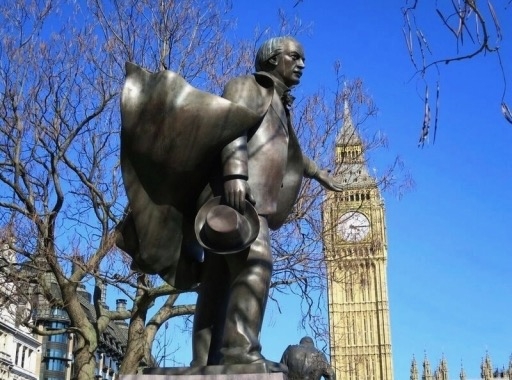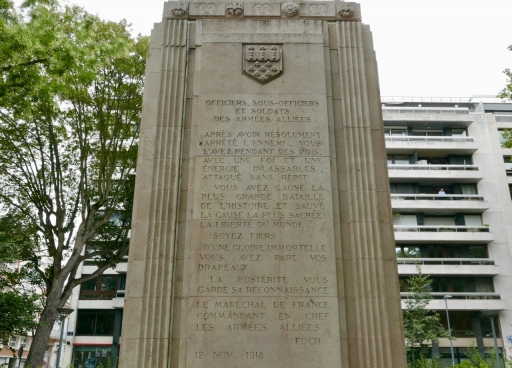The Armistice ending the First World War was agreed in Marshal Foch’s train at Compiègne early on the morning of 11 November 1918, coming into effect at 11 o’clock.
German emissaries, led by the Catholic centre politician Matthias Erzberger, had crossed the French lines four days earlier, on November 7, in a car carrying a white flag.
Their hopes of a negotiated truce were disappointed. Presenting the terms, Foch warned the war would go on if they weren’t accepted.
The Allied Supreme Commander set a deadline of 72 hours for agreement. The German delegation signed, such was the weakened state of their country militarily and economically.
Germany was required to evacuate all occupied territory, including the disputed province of Alsace-Lorraine, under German rule since the end of the Franco-Prussian War in 1871. The left bank of the Rhineland also had to be demilitarised. The German Navy’s surface and submarine fleets would be interned pending a decision on their fate. Massive quantities of munitions were surrendered.
 The Alsace-Lorraine Memorial, Compiègne (Image © Patrick Gregory/Centenary News)
The Alsace-Lorraine Memorial, Compiègne (Image © Patrick Gregory/Centenary News)
Fighting continued on the Western Front in the six hours which elapsed before the armistice took effect, costing hundreds of soldiers’ lives.
The US Army was still in action on the Meuse. British and Canadian troops closed in on Mons, scene of the British Expeditionary Force’s first clash with the advancing German Army on 23 August 1914. The Canadians entered the city shortly before the ceasefire started.
Finally, at eleven o’clock, on the eleventh day of the eleventh month, the First World War ended.
Soldiers spoke of the gunfire just dying away, leaving an almost eery silence.
Spontaneous celebrations erupted in towns and cities across the Allied nations, but many also grieved for those who would not be returning.
For some countries, the end of the war marked a new beginning. Poland, for example, celebrated the regaining of its independence on November 11 after more than a century of Austrian, German and Russian domination.
But more than four years of increasingly industrialised warfare had claimed some 10 million soldiers’ lives, and those of eight million civilians.
 British Prime Minister David Lloyd George told Parliament: “At eleven o’clock this morning came to an end the cruellest and most terrible war that has ever scourged mankind. I hope we may say that thus, this fateful morning, came to an end all wars.”
British Prime Minister David Lloyd George told Parliament: “At eleven o’clock this morning came to an end the cruellest and most terrible war that has ever scourged mankind. I hope we may say that thus, this fateful morning, came to an end all wars.”
However the collapse of the Austro-Hungarian, German, Ottoman and Russian was accompanied by the outbreak of regional conflicts in eastern Europe and the Balkans. And war broke out in Ireland against British rule.
The Paris Peace conference of 1919 formally concluded hostilities with the Central Powers in a series of separate agreements. The punitive terms imposed on Germany by the Versailles Treaty remain particularly controversial.
Matthias Erzberger was assassinated by right-extremists in August 1921.
Images: Centenary News (inscription from Marshal Foch’s statue in Lille & David lloyd George); Patrick Gregory (Alsace-Lorraine Memorial)
Posted by: CN Editorial Team
